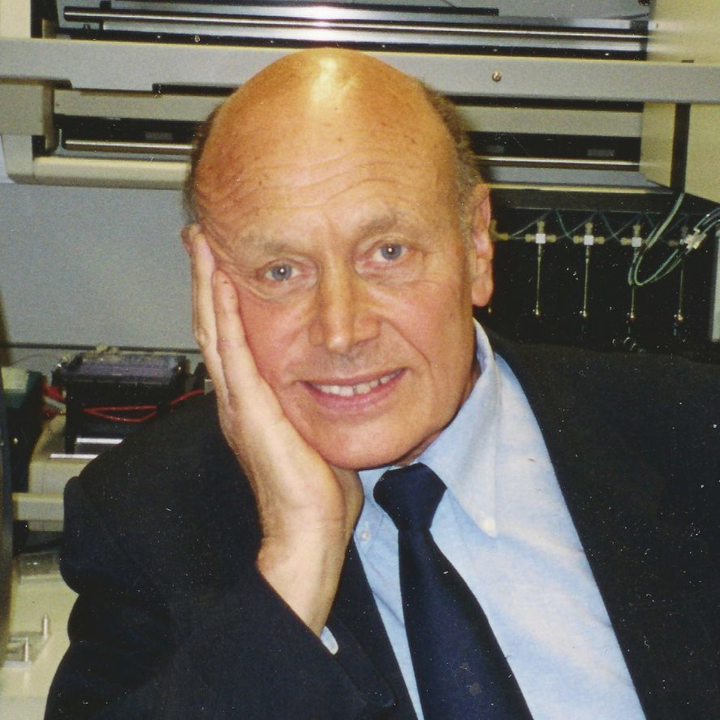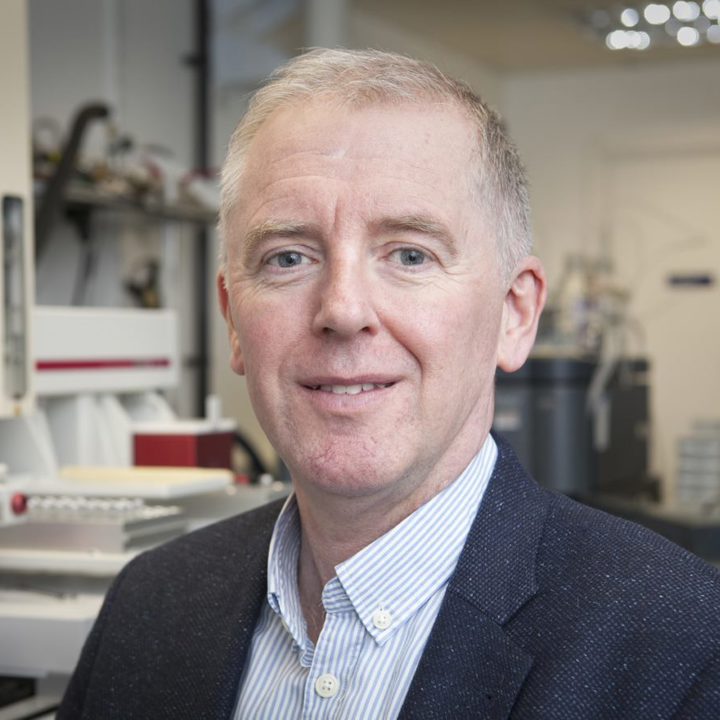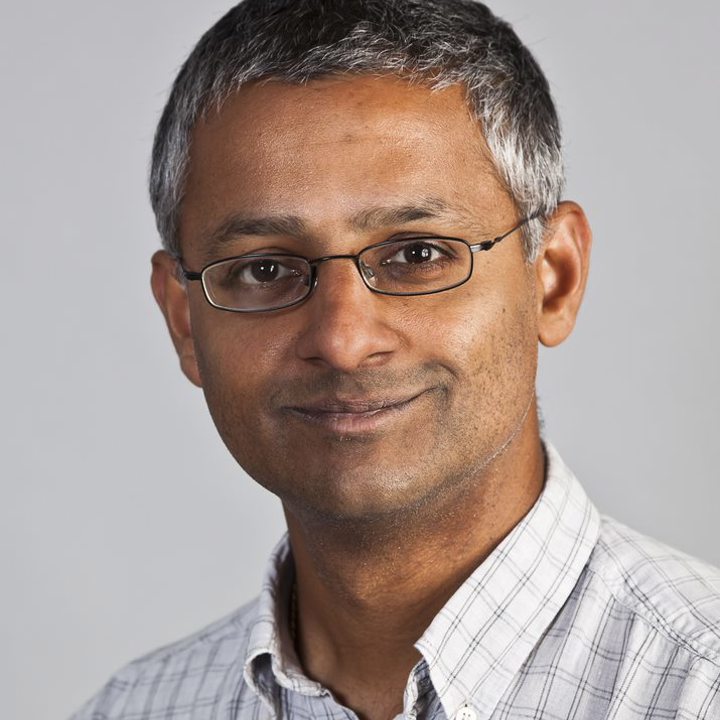
The Heatley Medal and Prize
The Heatley Medal and Prize was retired in 2023 and is no longer open for nominations. From 1994, this medal was awarded for exceptional work in applying advances in biochemistry, and especially for developing practical uses that have created widespread benefits and value for society, and so have enhanced the reputation of biochemical research as a source of wellbeing and prosperity.
The award was named after Dr Norman Heatley, a scientist known for overcoming wartime shortages to make the production of penicillin possible and his role in paving the way for mass production. Dr Heatley worked closely with the Society’s Industrial Biochemistry and Biotechnology Group (IBBG) and the Group originally sought nominations for the award.
The recipient of the Heatley Medal and Prize was given:
- A medal
- £2000 prize money
- The opportunity to present a prize lecture at a Biochemical Society conference
- The opportunity to submit an article to a Society-owned publication
Contact us
For further information please get in touch with the Awards department.
Related content
5 itemsRecipients
Nicola Curtin
Nicola Curtin

The 2023 Heatley Medal and Prize will be awarded to Professor Nicola Curtin. Nicola is Professor of Experimental Cancer Therapeutics at Newcastle University where she began her post-doctoral career in 1982.
Her research focusses on the development of anti-cancer drugs, particularly against the DNA Damage Response optimising their use, including identification of potential predictive biomarkers. Her greatest contribution is to the development of the PARP inhibitor (PARPi), rucaparib (Rubraca®) and the identification of the synthetic lethality of PARPi in tumours defective in the Homologous Recombination DNA repair pathway. PARPis are a major breakthrough in the treatment of ovarian cancer and are also approved for other cancer types. She was awarded the Robert R. Ruffolo Career Achievement Award in Pharmacology by the American Society for Pharmacology and Experimental Therapeutics in 2021 for her work. She enjoys enthusing and mentoring her PhD students, clinical fellows and ECRs. She is Editor in Chief of Expert Reviews in Molecular Medicine, working with a team of young and enthusiastic editors.
Nicola said: “The Heatley Medal is special to me because I am driven by both scientific curiosity and a desire to use this work to improve human health and, like Norman Heatley, I recognise that luck and teamwork has contributed to the success of this work.”
James Barber
James Barber

The 2020 Heatley Medal and Prize was awarded to Professor James Barber of Imperial College London, UK.
James is a senior research investigator and Emeritus Ernst Chain Professor of Biochemistry at Imperial College London. He is also Visiting Canon Professor to the School of Material Science and Engineering (MSE) at Nanyang Technological University (NTU), Singapore. The focus of his research has been the investigation of photosynthesis and the functional role of the photosystems with emphasis on their molecular structures. Much of his work has focused on Photosystem II, a biological machine able to use light energy to split water into oxygen and reducing equivalents. He reported the first fully refined X-ray structure of this enzyme in 2004. More recently, he has turned his attention from natural to artificial photosynthesis and the production of renewable energy based on the capture and storage of solar energy. To do so he has collaborated with chemists, electrochemists and material scientists to develop appropriate and novel technology. Much of this work has been spurred by the establishment of the Solar Fuels Laboratory within the School of Material Sciences at NTU. James has been elected a Fellow of the Royal Society of Chemistry, a Member of the Academia Europaea, Selby Fellow of the Australian Academy of Science, Foreign Member of the Royal Swedish Academy of Sciences, and a Fellow of the Royal Society and his work has been recognized by a number of UK and international prizes, including the Biochemical Society Novartis Medal and Prize.
James said: “I feel extremely honoured to be awarded the Heatley Medal and Prize. I share this honour with all those who have worked with me over the years. I particularly wish to acknowledge my colleagues in the School of Material Sciences and Engineering at NTU, Singapore with whom I am working on electrochemical systems to mimic natural photosynthesis. The overall challenge is to capture solar energy efficiently and store it in chemical bonds without carbonisation (for example as hydrogen). This is a daunting problem on a global scale but must be solved to sustain ordered human society into the future. As the Sir Ernst Chain Professor of Biochemistry at Imperial College, it is appropriate for me to recognise that Norman Heatley, a colleague of Ernst Chain at Oxford, was a key contributor to the discovery and application of penicillin. It has been surmised that he also deserved the 1945 Nobel Prize along with Ernst Chain, Alexander Fleming and Howard Flory. However the Nobel prize for Medicine or Physiology is limited to three recipients in any one year. I am therefore particularly proud to receive this medal which recognises Heatley’s contributions to one of the major discoveries in medical sciences, one which has saved billions of lives.”
Ian Graham
Ian Graham

The 2017 Heatley Medal and Prize was awarded to Ian Graham from the University of York. During his career Ian has made major contributions to our understanding of plant metabolism and seed biology. Transformative research has shed new light on the production of small molecule natural products from plants such as the anti-cancer compound noscapine, morphinan-based analgesics such as codeine and morphine and the antimalarial drug artemisinin. He led the way in the genetic dissection of lipid mobilization in Arabidopsis oilseeds and most recently has discovered a role for oxylipins in controlling seed germination.
Ian presented his lecture at the 2017 Local Ambassador Day on 16 November 2017.
Shankar Balasubramanian
Shankar Balasubramanian

The 2014 Heatley Medal and Prize was awarded to Shankar Balasubramanian from the University of Cambridge, UK. Shankar Balasubramanian is an internationally recognised leader in the field of nucleic acids who is distinguished for pioneering contributions to chemistry and its application to the biological and medical sciences. He is a principal inventor of the leading next generation sequencing methodology, Solexa sequencing, that has made routine, accurate, low-cost sequencing of human genomes a reality and has revolutionised biology. He has made seminal contributions to the identification, elucidation and manipulation of non-coding genetic elements, particularly four-stranded structures called G-quadruplexes. His work on the intervention of nucleic acid function using small molecules has revealed a number of molecular mechanisms that can be exploited, e.g., to modulate the biology of cancer.
Read Shankar's article in Biochemical Society Transactions - Decoding genomes.
Mervyn Bibb
Mervyn Bibb

Venki Ramakrishnan
Venki Ramakrishnan

Roger Sayle
Roger Sayle

Peter Dunnill
Peter Dunnill

Keith May
Keith May

Share this page!
The Heatley Medal and Prize
The Heatley Medal and Prize is no longer open for nominations. Until 2023, this medal was awarded for exceptional work in applying advances in biochemistry, and especially for developing practical uses that have created widespread benefits and value for society, and so have enhanced the reputation of biochemical research as a source of wellbeing and prosperity.
